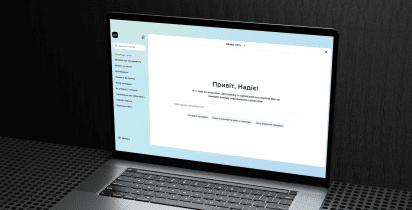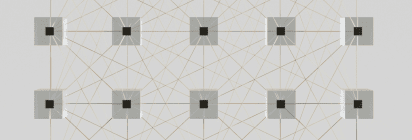- Direction:
- GovTech
Diia.AI: The World’s First National AI-Agent That Delivers Real Government Services
- Authors
- Mykhailo Fedorov
- Publication date and time:
- Reading time:
- 4 min

Op-ed by
Mykhailo Fedorov,
First Deputy Prime Minister of Ukraine — Minister of Digital Transformation of Ukraine
Ukraine is betting on artificial intelligence — and this is not just a trend. It is our clear and defined mission: by 2030, we aim to become one of the world’s top three countries in terms of AI development and integration in the public sector.
This week, we took another major step toward that goal — we launched Diia.AI on the Diia portal. It is the world’s first national AI-agent that goes beyond answering questions — it actually provides government services directly within a chat. The AI assistant is now available in open beta, and users can already receive the first service through AI — an income certificate. New services will be rolled out gradually as the AI develops.
Our focus is to transform Diia from a digital services platform into a fully functional AI-agent that operates 24/7, without the need to manually fill out forms or fields. Diia is becoming a proactive assistant in the citizen–state relationship. The AI-agent doesn’t simply act as a chatbot that responds to queries — it takes action based on the user’s request. For example, you write to the assistant in the chat: «I need an income certificate», and receive it directly in your personal account on the Diia portal, with an email notification once it’s ready.
AI agents represent the cutting edge of artificial intelligence, fundamentally changing the way services are accessed globally. The future lies with agentic states, and Ukraine is boldly advancing toward this format — where a single user request leads directly to results. AI agents act as personal digital assistants, independently building action plans, initiating service requests, and autonomously executing all stages of task completion.
We are confidently moving forward — becoming the first country in the world to launch a national AI-assistant based on an agentic model, capable not only of providing consultations but also delivering public services via a single digital window.

What is Diia.AI?
Diia.AI is a personal AI-assistant that both advises and delivers services. Visually, it resembles familiar AI-chatbots like ChatGPT or others we’ve grown accustomed to. In its initial phase, the assistant is available on the Diia web portal, with a mobile app integration to follow.
As of today, Diia.AI can perform a range of tasks:
- Consultation & Navigation: It provides step-by-step guidance on how to access any service available on the Diia portal, as well as information about the Ministry of Digital Transformation’s projects. You can ask, for instance, how to sell a car through Diia, submit an application for the eRestoration program, or choose a business grant from Diia.Business.
- Service Matching Based on Life Situations: Say your home has been damaged. Diia.AI will suggest the relevant service — eRestoration, guide you on how to submit photos, and explain how to send an application to the commission.
- Service Delivery Without Extra Steps: This is where Diia.AI is truly innovative. The assistant provides services directly within the chat, streamlining the process and making it as user-friendly as possible. Currently, the first available service is the income certificate. In the future, more services will be added — ultimately making Diia.AI the single access point for all public services on the portal.
Beta Testing and Continuous Learning
Diia.AI is currently available in open beta and is continuously learning. Like any system based on large language models (LLMs), it requires time to «accumulate» knowledge and improve. Every user interaction contributes to this evolution. You can leave feedback directly in the chat: if the AI’s response was helpful, rate it as «effective»; if not, mark it as «ineffective» — and a feedback form will open where you can explain why. Our team uses this input to fine-tune the assistant, ensuring that each future response is better than the last.
How Does Diia.AI Work?
Diia.AI is powered by generative artificial intelligence, meaning the assistant doesn’t just retrieve pre-written answers from a database — it generates a unique response in real-time for each request.
When a user submits a query, the AI assistant leverages a large language model, analyzing keywords, context, and user intent to formulate a personalized and informative response. In this way, the assistant functions more like a well-read expert than a static encyclopedia — forming replies based on its entire corpus of trained knowledge.
That’s why Diia.AI may provide different answers to identical questions — it adapts to wording and context, offering flexibility and personalization. At the same time, the clarity of the user’s request — including keywords and context — plays a crucial role in the quality of the assistant’s response.

The Technical Architecture of Diia.AI
Diia.AI is powered by Google’s Gemini 2.0 Flash — a cutting-edge large language model — further fine-tuned on Ukraine’s internal digital infrastructure, including services from Diia, Diia.Business, Diia.Education, and others.
The assistant operates on a hybrid infrastructure:
- a local On-Premise system within Diia’s secure perimeter,
- combined with cloud-based processing using Google’s technology.
Crucially, data from state registries is shielded from the cloud model — ensuring a high level of data privacy and security.
In addition, all user queries pass through a Guardrail filter that blocks potentially harmful or suspicious content, enhancing trust and safety for users.
Diia Becomes an AI-Agent
When we first created Diia, our goal was to make access to government services as simple and fast as ordering a taxi or booking a hotel. Today, we are going further — building a digital state that proactively responds to citizens' needs.
Diia.AI is the first step on this journey. And many more high-quality, convenient services lie ahead — transforming how people in Ukraine interact with their government.



